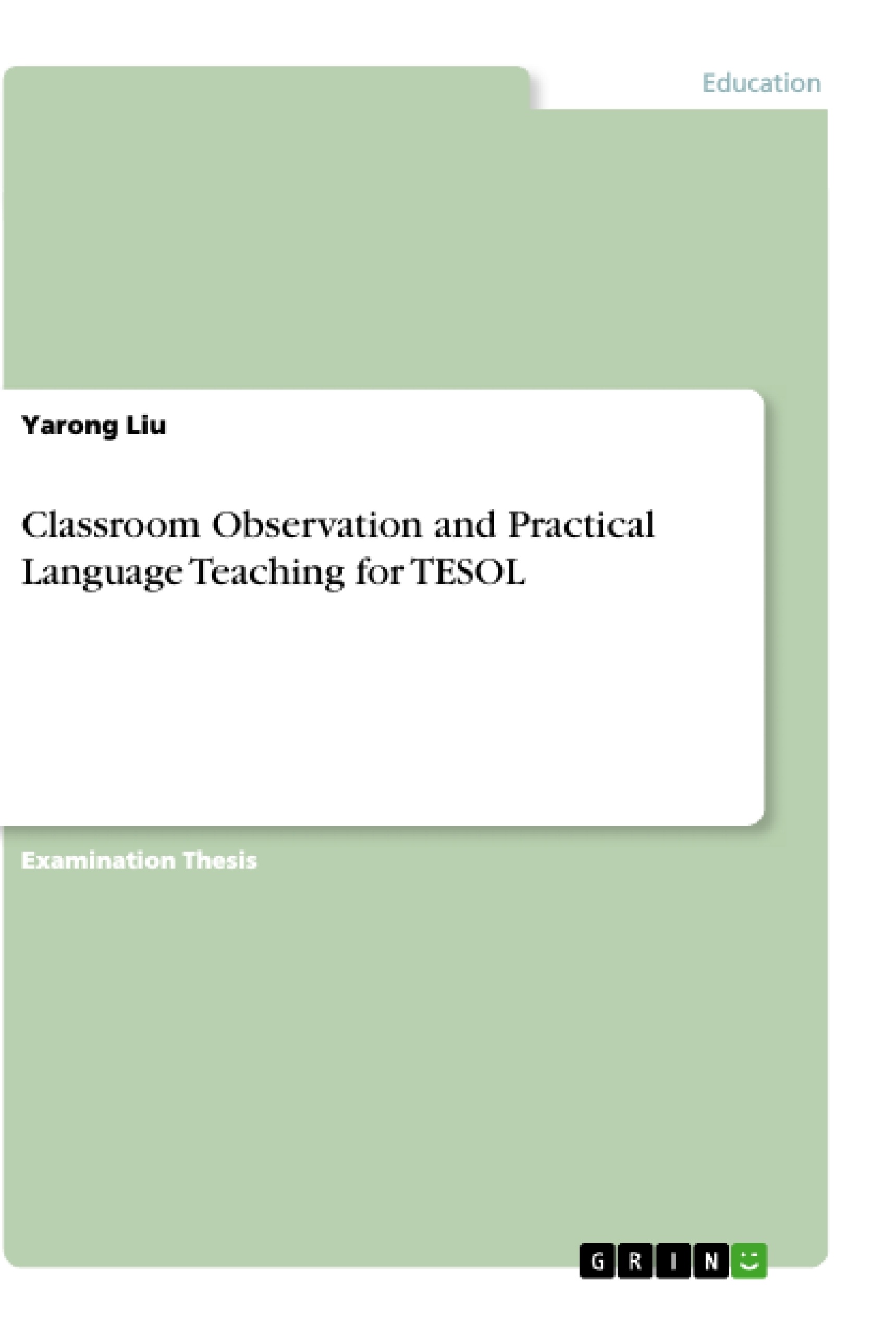The text is a report on the English teaching classroom observation. The report is divided into three parts: descriptions of internship tasks, learning gain and challenges of the teaching experience, as well as an analysis of a session. The analysis adheres to Devo's (2014) "the 6P framework: purpose, predicate, perceived parties, participants, profiters, and products" and employs several instruments to analyze the sample session, which will be useful for anyone looking for how to write a classroom observation for academic purposes.
Inhaltsverzeichnis (Table of Contents)
- Introduction: Information about the institution and my internship.
- Description of my responsibilities and tasks during the internship
- Description and analysis of a sample session......
- Critical reflection.........
- Learning gain from the internship......
- Challenges encountered and solutions
- Conclusion..........\n
- References.\n
- Appendices..\n
- Appendix A: Observation protocol.
Zielsetzung und Themenschwerpunkte (Objectives and Key Themes)
The internship report focuses on providing a comprehensive overview of the author's experience observing English language classrooms in both Turkish and German educational settings. This report aims to analyze the effectiveness of different teaching methods and pedagogical strategies used in these classrooms, as well as explore the challenges and learning gains encountered during the internship.
- Comparison of online and in-person teaching approaches
- Effectiveness of various teaching methods, including drill, deductive, and peer-evaluation/teaching
- Impact of instructional technology on student engagement
- Interplay between language and culture in the classroom
- Student-centered learning approaches and problem-based learning (PBL) methods
Zusammenfassung der Kapitel (Chapter Summaries)
The introduction provides information about the two institutions where the internship was conducted: a Turkish university and a German international secondary school. The author describes the specific characteristics of each institution, including the target learners, course structure, and their own role as a teaching assistant or observer.
Chapter 2 details the responsibilities and tasks undertaken during the internship at both institutions. This includes classroom observation, materials development, and teaching. The author provides specific examples of the activities they participated in, such as observing online sessions on Microsoft Teams, developing materials for evaluating student learning outcomes, and conducting a five-hour teaching session.
Chapter 3 delves into a detailed analysis of a sample session observed at the German international secondary school. The author utilizes a specific framework and observation tools, including Flanders Interaction Analysis Category System (FIACS), Active Learning Classroom Observation Tool (ALCOT), and Teaching Dimensions Observation Protocol (TDOP), to analyze the session's effectiveness and the interplay between instructor and student interactions. The chapter focuses on a session that explored the interrelationship of language and culture, analyzing how the instructor employed student-centered approaches and PBL methods to guide student discussion and critical thinking.
Schlüsselwörter (Keywords)
The main keywords of this internship report include classroom observation, teaching methods, pedagogical strategies, online teaching, student engagement, instructional technology, language and culture, student-centered learning, problem-based learning (PBL), Flanders Interaction Analysis Category System (FIACS), Active Learning Classroom Observation Tool (ALCOT), and Teaching Dimensions Observation Protocol (TDOP).
- Quote paper
- Yarong Liu (Author), 2021, Classroom Observation and Practical Language Teaching for TESOL, Munich, GRIN Verlag, https://www.grin.com/document/1138457



